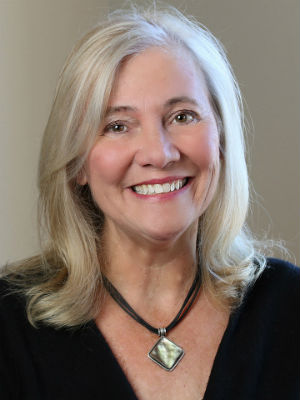
Unlimited new precedent to go after unpopular faculty
This isn’t officially laid out in the University of Oregon faculty handbook, but it should be now:
Rule 1: Don’t invite your students to costume parties.
Rule 2: Don’t come up with a too-clever-by-half costume you have to constantly explain.
Rule 3: Don’t think twice before turning down UO, a steaming pile of Willamette Valley dung propped up by taxpayer dollars, if it offers you a job.
Law Prof. Nancy Shurtz has just been slapped with a finding of “discriminatory harassment” because she tried too hard to make a political statement about diversity.
That’s right – she violated university policy and is not protected by academic freedom or freedom of expression because her costume offended some students (and faculty) who didn’t like the way she was making her point.
And the university publicly shamed the hell out of her to make sure no UO professor ever does anything the slightest bit controversial ever again without understanding they can be publicly crucified for it.
Guess what Shurtz was wearing.
Her point: There are too few black men in higher ed
Here are some excerpts of the redacted investigative report commissioned by UO, released Wednesday, to look into the controversy caused by Shurtz’s party and costume:
Shurtz hosted a Halloween party at her home on October 31, 2016. She invited all of the students from both her Tax Policy and Tax Planning classes. The invitation was made orally during class, as well as by sending emails through the class listservs, using the students’ University email addresses. The invitation was open to guests, in that students were welcome to bring family members, dates, or plus-ones. Several faculty members and alumni were also invited. Shurtz indicated in advance that people could choose to wear costumes if they wished, and that she would be “going as a popular book title,” with no further description of her anticipated costume.
Shurtz modeled her costume after a book titled Black Man in a White Coat, by Damon Tweedy, MD. Her costume incorporated a white doctor’s lab coat, a stethoscope, black makeup on her face and hands, and a black curly wig resembling an afro.
Daring choice of costume, to say the least. (You can see a photo of her in costume courtesy of Pepperdine Law Prof. Paul Caron’s blog.) Here’s how the report describes her intentions:
We determined that she was inspired by this book and by the author, that she greatly admires Damon Tweedy and wanted to honor him, and that she dressed as the book because she finds it reprehensible that there is a shortage of racial diversity, and particularly of black men, in higher education. Shurtz was further inspired to this costume by virtue of the fact that her daughter attends medical school and her incoming class also had very few people of color; her daughter inquired with school administration about the class demographics and this apparently led to the medical school assigning reading assignments from Damon Tweedy’s book.
So … not self-evident what she was getting at just by looking. But it’s clear from the investigators’ interviews that Shurtz repeatedly explained the costume throughout the night.
 If anybody left the party wondering what she was thinking, it wasn’t for her lack of trying, even though they all kept her in the dark:
If anybody left the party wondering what she was thinking, it wasn’t for her lack of trying, even though they all kept her in the dark:
The interviews unanimously revealed that nobody told Shurtz during the event that her costume was inappropriate, that it was offensive, or that she should consider removing the black makeup. In addition, all those who were interviewed conveyed that Shurtz appeared to have worn the costume in earnest, and that she did not seem to understand the ramifications of her costume.
The professor’s worst mistake seems to have been trying even harder to explain her costume, rather than simply apologizing to the one student who told her the next day it was offensive:
The following morning, November 1, 2016, Shurtz responded to this student, and copied both of her class listservs, conveying why she had chosen the costume. Another student spoke with Shurtz in person to impress upon her the fact that her costume was likely to result in repercussions. Shurtz also reached out to two students of color who were in attendance at the event to personally apologize for her costume choice.
From there, the bureaucrats pounced and Shurtz’s law colleagues declared her unclean, demanding she resign for the horror of wearing a too-confusing-to-work Halloween costume. She issued a public apology days later.
Investigators recommended that Shurtz be charged with “discriminatory harassment” because she “unreasonably discriminate[d]” against black people in a way that was
sufficiently severe or pervasive that it interferes with work or participation in any university program or activity, including academic activities because it creates an intimidating, hostile, or degrading working or university environment for the individual who is the subject of such conduct, and where the conduct would have such an effect on a reasonable person who is similarly situated.
How in the world can wearing a confusing costume create “an intimidating, hostile, or degrading” environment for people who voluntarily attended Shurtz’s party?
It didn’t feel voluntary, students told investigators:
Half of the students personally felt, or understood that other students felt, that attendance at Shurtz’s party, and remaining for a longer duration of time even despite feeling uncomfortable, was important in relation to the teacher-student relationship. Half of the students felt at ease to attend or not attend at their own discretion.
There is not the least suggestion from any student that Shurtz had ever conveyed, even subtly, that not attending her party would be viewed as a personal snub. It’s frickin’ Halloween – she knows you’re young and hip, and she’s old and lame, and you have other places to be.
Students wholly invented this paranoia, and it probably ruined Shurtz’s career.
‘Public nature of the act’ compels report’s release
Now the university had the excuse it needed to publicly ruin Shurtz without (apparently) going after her tenure, which could have backfired.
It also set a precedent for going after any other professor who makes an innocent but widely misunderstood gesture.
Without saying how UO was punishing Shurtz, Provost Scott Coltrane released a statement that should send a chill down the spine of every professor:
Although the findings of such investigations are not usually released, in this case the public nature of the act, the resulting public outcry, its impact on campus climate, and the fact that Professor Shurtz already released a letter that identifies herself and her intentions, the university has determined that it best serves the public interest to release a redacted version of the report. …
Though the report recognizes that Professor Shurtz did not demonstrate ill intent in her choice of costume, it concludes that her actions had a negative impact on the university’s learning environment and constituted harassment under the UO’s antidiscrimination policies. Furthermore, the report finds that pursuant to applicable legal precedent, the violation and its resulting impact on students in the law school and university outweighed free speech protections provided under the Constitution and our school’s academic freedom policies.
Get that? Because students felt subjectively uncomfortable at a party their paranoia compelled them to attend, Shurtz has lost her most fundamental rights as a professor at a public university.
This reference to “applicable legal precedent” is utter bullplop, as highlighted by Peter Bonilla, vice president of programs at the Foundation for Individual Rights in Education (FIRE). I’ll forgive UO President Michael Schill for his ignorance as a lawyer, since his specialty is property law.
I would like to hear UO explain how its determination here coexists with 1A jurisprudence as we know it, rather than take its word for it. https://t.co/IkhqHuGACN
— Peter Bonilla (@pebonilla) December 21, 2016
A red herring?
UO Economics Prof. Bill Harbaugh, who runs the university watchdog blog UO Matters, isn’t buying the university’s claim that this party traumatized the law school so badly that Shurtz’s rights as faculty have been gutted.
He called Shurtz’s costume “stupid and offensive” – not an unreasonable view – but thinks it might be a red herring:
[The report] does not address the possibility that the responses of the law school administration might have been in part motivated by a desire to retaliate against Shurtz for her opposition to the reappointment of Dean Moffitt, or the possibility that the responses by the law school administration, some of its faculty, and the central administration may have escalated the situation and increased the level of racial harassment felt by students, or the harm to the law school and UO.
Harbaugh seems to think Shurtz’s situation is similar to another recent investigation of someone on campus for a misunderstood artistic statement.
In an update earlier this week to a post that skeptically tracked UO’s investigation, Harbaugh noted that FIRE recently helped a Winthrop University student prevail in a speech-code investigation into an “anti-lynching art installation.”
It’s worth reading that full post, which goes back to right after Shurtz’s suspension. Harbaugh thinks she has a legal case against UO based on Auburn University’s 2002 settlement of a lawsuit against it by a fraternity that was punished for wearing blackface:
My uninformed guess is that if Law School Dean Michael Moffitt doesn’t lift Professor Shurtz’s suspension soon and offer a heartfelt apology UO will pay out at least the $800K the Bowl of Dicks cost us – plus billable hours, of course. [Here’s the backstory on the “Bowl of Dicks.”]
It’s not clear from the resolution of the investigation that Shurtz will think litigation is worthwhile; she’s not talking.
Her reputation notwithstanding, Shurtz’s job appears to be safe for now. A university spokesperson told The Oregonian that she’s been taken off administrative leave and remains faculty, though she’s not scheduled to teach next semester.
Will she ever teach anywhere else? That looks doubtful, seeing how UO dragged her through the mud for the unforgivable sin of trying to unconventionally raise awareness of discrimination against black men in higher ed.
It also means Shurtz will be cheaper to keep: She has almost certainly agreed to a pay cut or forfeited other perks.
You can show support for Shurtz’s right to freedom of expression by signing this Change.org petition from shortly after her suspension. Or contact President Schill and Provost Coltrane.
Like The College Fix on Facebook / Follow us on Twitter
IMAGE: ostill/Shutterstock






Please join the conversation about our stories on Facebook, Twitter, Instagram, Reddit, MeWe, Rumble, Gab, Minds and Gettr.